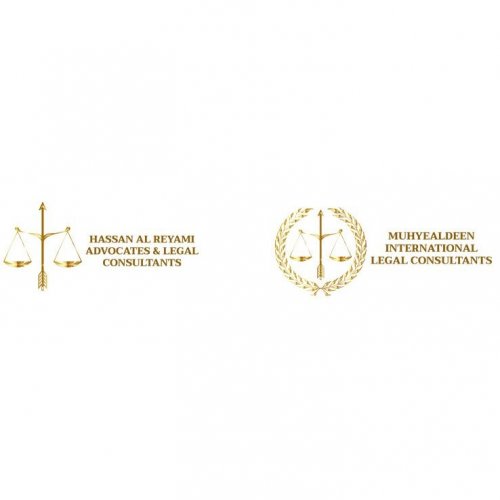Best Father's Rights Lawyers in Dubai
Share your needs with us, get contacted by law firms.
Free. Takes 2 min.
Free Guide to Hiring a Family Lawyer
List of the best lawyers in Dubai, United Arab Emirates

About Father's Rights Law in Dubai, United Arab Emirates
In Dubai, as with the broader United Arab Emirates (UAE), the regulation and enforcement of Father's Rights are primarily based on Islamic (Sharia) law. The rights of the father generally include custody decisions, visitation, and a role in making important decisions for their children's welfare. However, unlike in many Western countries, physical custody is typically granted to the mother, particularly for younger children. It's important to note that these laws are intricate and specific; hence, a proper comprehension requires expert legal advice.
Why You May Need a Lawyer
Legal assistance in understanding and enforcing Father's Rights in Dubai is essential due to the complexity of Sharia-based familial law. Typical situations may include when facing divorce and subsequent custody battles, negotiating visitation rights, or engaging in disputes surrounding important decision-making concerning the child's upbringing. A lawyer not only ensures that you fully understand your rights and responsibilities but can also advocate on your behalf in court.
Local Laws Overview
The laws in Dubai recognize the father as the legal guardian, responsible for providing financial support, meaning they make essential decisions related to child's wellbeing including education. However, physical custody is often granted to mothers until the children reach a particular age (boys at 11 and girls at 13). After these ages, the court can decide to transfer custody to the father, based on the best interests of the child. Visitation rights are typically granted to the father, but specifics can vary based on court rulings.
Frequently Asked Questions
1. At what age can a father get custody of his children?
In Dubai, the court may decide to transfer physical custody of boys to their father at age 11 and girls at age 13.
2. Can a father get visitation rights?
Yes, fathers are generally granted visitation rights, though the specific details are subject to the court's discretion.
3. Are there circumstances where a father could lose his rights?
Yes, severe circumstances such as proven child abuse can lead to a father losing his rights.
4. What are the father's financial responsibilities?
The father is typically responsible for supporting the child's financial needs, including housing, education, and general wellbeing.
5. Is the law different for expats?
While general principles remain the same, some specifics may vary for expatriates residing in Dubai. It's crucial to seek legal advice for accurate information relating to individual circumstances.
Additional Resources
Government bodies like the Ministry of Community Development and relevant courts can provide important resources. Additionally, several legal advisory services provide specialized support for family matters in Dubai.
Next Steps
If you find yourself in need of legal assistance regarding Father's Rights in Dubai, it is recommended that you seek professional legal advice. Consider hiring a lawyer who specializes in family matters under Dubai law. Ensure to gather all relevant documents and information about your situation to present to your lawyer to obtain accurate advice.
Lawzana helps you find the best lawyers and law firms in Dubai through a curated and pre-screened list of qualified legal professionals. Our platform offers rankings and detailed profiles of attorneys and law firms, allowing you to compare based on practice areas, including Father's Rights, experience, and client feedback.
Each profile includes a description of the firm's areas of practice, client reviews, team members and partners, year of establishment, spoken languages, office locations, contact information, social media presence, and any published articles or resources. Most firms on our platform speak English and are experienced in both local and international legal matters.
Get a quote from top-rated law firms in Dubai, United Arab Emirates — quickly, securely, and without unnecessary hassle.
Disclaimer:
The information provided on this page is for general informational purposes only and does not constitute legal advice. While we strive to ensure the accuracy and relevance of the content, legal information may change over time, and interpretations of the law can vary. You should always consult with a qualified legal professional for advice specific to your situation.
We disclaim all liability for actions taken or not taken based on the content of this page. If you believe any information is incorrect or outdated, please contact us, and we will review and update it where appropriate.
















